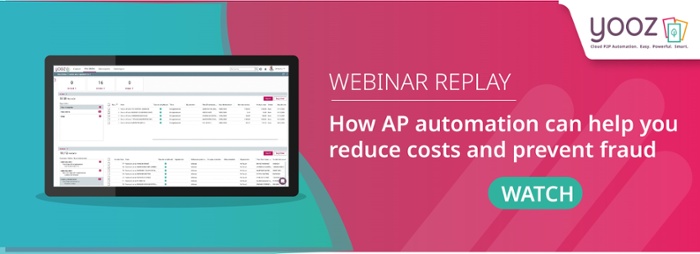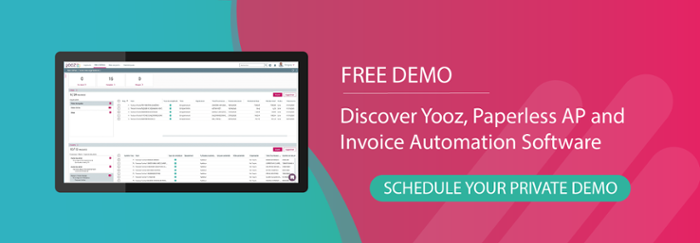Financial scandals are rampant, and especially for accounting departments dealing with daily attempts at accounts payable fraud, it often seems like they are fighting an endless and unwinnable battle. It’s one that continues to impact businesses across all sectors, both public and private, with research showing that UK businesses are in fact losing an estimated £137 billion to fraud every year. Unfortunately, as long as businesses continue to ignore some of the basic issues (including many believing that they'll never be a target), the problem is only predicted to get worse with the resulting losses impacting the entire economy.
The situation is compounded by ongoing changes in work environments and increasingly sophisticated technology developments. The 2019 pandemic fueled an increase in remote working staff and growing right alongside was fraud. In fact, according to the Crime Survey for England and Wales (CSEW), there was a 54% increase in fraud and computer misuse offences in the UK in 2021 compared to pre-Covid 2019.
However, the main problem doesn't really have anything to do with either remote staffing or even flexible working. Its more that companies don't have the proper systems in place to detect and prevent accounting fraud from happening in the first place. The real question is why aren't firms taking action to prevent fraud?
One reason could be that there seems to be a complete lack of awareness of how serious the current situation is, or as stated above that many businesses don’t believe they will become a target. Based on the 2021 State of Automation in Finance research by Yooz and the Associate in Premium Auditing (APA), fraud detection (24%) was low down on the list of priorities for UK finance leaders when it came to implementing accounts payable solutions. Reducing errors (35%), cost reduction (30%), and even reducing paper use (26%) are deemed more important.
The reality is that they are all linked together.
What is accounting fraud?
To understand why they are all tied together one must first understand what is considered accounting fraud.
Accounting fraud is when a person or group intentionally targets a company’s finance department to take money out of the business. However, there are many different examples and methods being used to defraud businesses today, and it can be tricky to decipher what fraud looks like and indeed when it happens. Some of the most common acts of accounting fraud - and something which we’ll explain in more detail later - include purposely inflating revenue, recording false assets, or overstating corporate expenses.
People also commonly associate fraud cases with instigators from outside of the business, but as there are rising cases of people within companies using their position to wire money to themselves, it helps to have set procedures and processes in place no matter what the scenario.
The array of software tools and lack of proper security means fraudsters can target businesses in all sorts of different ways, but one of the most common ways is from imposter scams such as phishing and gaining access to company emails. For example, say an accountant receives an email supposedly from the CFO or CEO who has asked to pay a supplier £50,000 for services bought. Will they question it when there seems to be a legitimate invoice attached? Especially when they are overwhelmed by the number of invoices being processed. Perhaps in larger businesses where protocols and automated systems are in place to protect them, but it’s less likely in smaller operations that utilise manual processes.
This isn't to say that fraud is a smaller sized business problem. All businesses have financial operations and accounting process. However, for larger businesses with colleagues and departments spread out across one or several countries, it can be much harder for finance leaders and security teams to predict where fraud can take place but also when it strikes. For example, cash skimming fraud - where money gained from a sale goes unrecorded in the accounting books and is taken for personal use - often goes undetected for a period of 18 months. Not only can it be difficult to ascertain when fraud takes place, but also who is doing it, and businesses and investors have lost out on huge sums of money trying to pursue fraudsters and legal cases. The best case of action, then, is doing your best to make sure fraud doesn’t happen in the first place.
How does accounting fraud happen?
This is the question everyone wants to know the answer to but the truth is that there really isn't a one-size-fits-all answer, as new and sophisticated developments in technology ensure that new, original means of accounting fraud will continue to threaten businesses long into the future. Yet many leave themselves wide open by not prioritising fraud prevention whatsoever, or by relying on old, manual practices that can do almost nothing to properly secure a company’s finances. So what to look out for?
There are six common types of fraud that affects businesses, particularly accounting departments:
1. Multiple payments:
As a business grows and invoices come in by their hundreds or thousands, financial control and visibility can quickly become lost in the myriad of documents being sent to and from other suppliers and vendors, opening up the possibility for duplicate payments. Although there have been occurrences where this has been done on purpose to wire money straight into a personal account, multiple payments are in fact often sent by mistake. In any case, a business must have a system in place to make sure this never happens, as claiming money back can be both time-consuming and awkward.
2. Phishing scams:
Phishing has become by far the most common way fraudsters will try and trick people into sending them money simply because it’s the most effective. The process can start via email, text, or automated phone call, but all work in the same way in that they involve people pretending to be someone else, another company/supplier, or even a completely made-up organization. Phishing scams are incredibly difficult to spot as they may seem entirely convincing, especially if it’s sent from a senior executive's own email, and it only takes one to suddenly lose hundreds of thousands of pounds.
3. Expense fraud
One more commonly found within larger businesses, fraudulent expense claims typically see smaller sums of money stolen but over longer periods of time. Most of the time this will involve staff members purposely producing receipts that overstate the actual amount that they’ve paid, while they simply keep the difference. Although sometimes these can be put down to honest errors, deliberate attempts to defraud the company through fraudulent expense claims can be hard to spot and even harder to prove. For example, claiming expenses on a meeting with friends rather than clients, or a hotel that was used for leisure rather than business purposes.
4. Invoice fraud
This is another very simple yet common tactic that gets overlooked, which involves sending a random invoice to a company’s finance team in the hope that they pay it. Although this might seem unlikely, or maybe a tactic that is more susceptible to smaller businesses, both Facebook and Google lost over $100 million this way from just by one person. Invoice fraud is incredibly frustrating, as accounting teams can quickly check if the invoice relates to a legitimate transaction if they have access to an automated system that checks against purchase order numbers and receipts.
5. Payroll fraud
As the term suggests, payroll fraud consists of employees intentionally lying or manipulating their salaries, sales made, or even productivity. There have even been cases where ‘ghost staff’ have been created to make it seem like another employee but with money wired into a separate shell account. Payroll fraud can also be a concern when a business hires freelancers or contractors who purposely overestimate their hours spent working, as many don’t have systems or processes such as timesheets and three-way invoice matching in place and instead have to rely solely on whatever statement is provided.
6. Fake vendors
Linked to invoice fraud, the creation of fake companies - or fraudsters posing as a legitimate business - is another tactic that is becoming increasingly popular because of its success rate. Accounting teams are under constant pressure to process invoices and keep suppliers paid on time, which means their first thought can sometimes be to make the payment first, ask questions later even if they’ve never heard of the company in question.
Detecting and preventing accounting fraud
You might have seen a link between the common types of fraud described above: almost every single one can be tied back to manual and impractical ways of managing a company’s accounting and accounts payable processes. Without new, digital practices - those supported by the latest technology - it’s only a matter of time before businesses become a victim of fraud. Fortunately, it's not too late to explore solutions that put finance teams back in control. The top solution is an automated accounts payable system that can not only detect when potentially fraudulent activity happens, but also puts procedures in place that actively prevent future scams from happening.
For example, say you receive an invoice from a supplier or employee you don’t recognise. With an automated accounts payable system in place, it will not only flag this as a potential case of fraud, but it will also even stop payments altogether if invoices don’t match up with information held in the accounting system such as supplier details, bank information, and purchase order numbers. The system is set up to read and analyse data on financial documents and match it with information held on previous invoices so that it can detect any inconsistencies. For internal fraud, two-way authentication and employee restrictions can also be set up to make sure only those who are responsible for accessing and managing payments are able to do so.
One of the other reasons why fraud commonly takes place is a lack of visibility into current financial practices, invoice status, and previous payments made. With automated accounts payable, businesses can receive a 360-degree view of historical transactions as well as what’s taking place in real-time, all in one platform that can be shared between teams in different locations. Armed with this information, staff gain complete visibility and control into every step of the payment process and take the necessary procedures to protect the company from fraud.
It's important to remember that while tools such as automation can help detect financial fraud, technology is helping fraudsters to continually innovate their own methods. Businesses that don't move fast enough are still at risk.
The Financial Cost of Fraud Report estimates that UK organisations which introduce effective measures and methods to prevent fraud stand to save upwards of £55bn annually. If implementing automation into finance processes can help gain even a tiny fraction of that amount back, then businesses stand to save a huge amount financially as well as keep their reputation intact and stakeholders happy.








